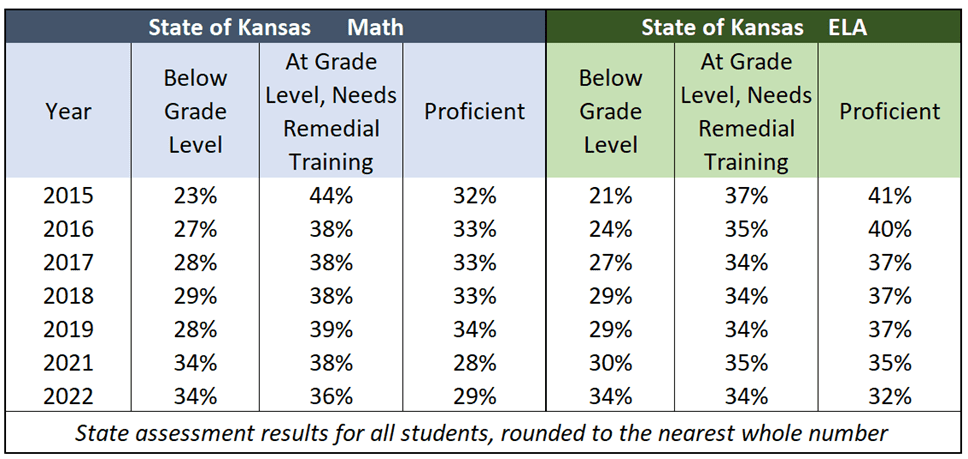The Kansas School Board Resource Center has begun a series of training workshops for board members to help them be effective advocates for students and improve academic outcomes.
The first set of workshops, held last week in Dodge City, Hays, and Salina, examined school board members’ statutory obligation to annually conduct needs assessments in each school within the district. K.S.A. 72-1163 says, “Each year the board of education of a school district shall conduct an assessment of the educational needs of each attendance center in the district. Such assessment shall be published on the school district’s website. Information obtained from such needs assessment shall be used by the board when approving the budget of the school district to ensure improvement in student academic performance.”
KSBRC, which, like The Sentinel, is a subsidiary of Kansas Policy Institute, provided training on the building needs assessment requirement because many school districts have not been following the law, and some education officials say they weren’t aware of the statute. Some districts published reports for each building, but district staff prepared them without involving school board members as required by state law. Additionally, many districts did not answer the three questions that are statutorily required:
- What are the barriers preventing students from being proficient in reading and math?
- What budgetary changes are needed to overcome the barriers?
- With changes implemented, how many years will it take for students to be proficient?
In addition to covering board members’ legal obligations, the workshop made recommendations on conducting effective meetings with principals and teachers, assembling the information needed for the budget process, and how to hold district management accountable by monitoring progress throughout the year. Training documents provided at the workshop are available on the KSBRC website.
 Simply put, the building needs assessment process creates a template for school boards to create strategic plans to improve student achievement. The Kansas Legislature implemented the requirement because achievement for most students is low and has been declining even before the pandemic. Overall, there are more students below grade level in Kansas than are proficient in reading and math. For example, 34% are below grade level, and just 29% are proficient in math. The results for high school students are worse, at 46% and 20%, respectively.
Simply put, the building needs assessment process creates a template for school boards to create strategic plans to improve student achievement. The Kansas Legislature implemented the requirement because achievement for most students is low and has been declining even before the pandemic. Overall, there are more students below grade level in Kansas than are proficient in reading and math. For example, 34% are below grade level, and just 29% are proficient in math. The results for high school students are worse, at 46% and 20%, respectively.
Jane Gamber, with USD 309 in Nickerson, enjoyed her session:
“I found the KSBRC workshop to be well-planned and presented and very informative. The focus on board member responsibility was both clear and refreshing. Questions were answered directly.”
Ward Cassidy is the Executive Director of KSBRC. He was impressed with the commitment of the board members who attended the first round of workshops:
“I was very pleased with the workshops relating to the Building Needs Assessment state law. We had some wonderful dialogue, and the workshop gave board members some great tools to help their district improve student outcomes. Making decisions based on data was very well received and appreciated by the attendees. I also appreciated the concern shown by all and their ideas for future workshops.”
Cassidy says the next round of training workshops in May or June will focus on budget preparation.



